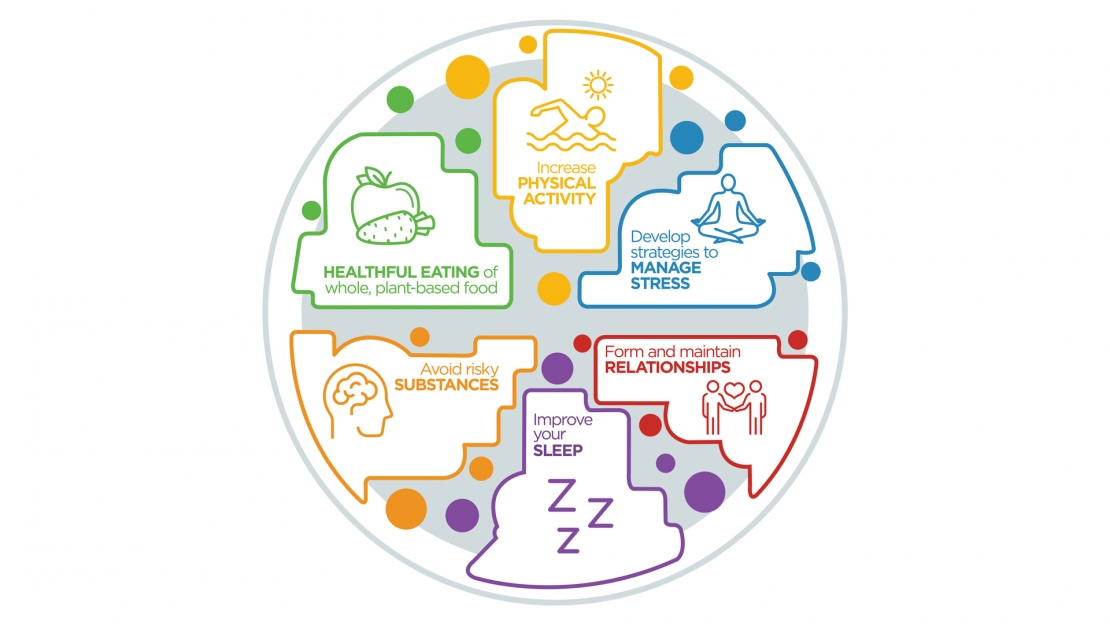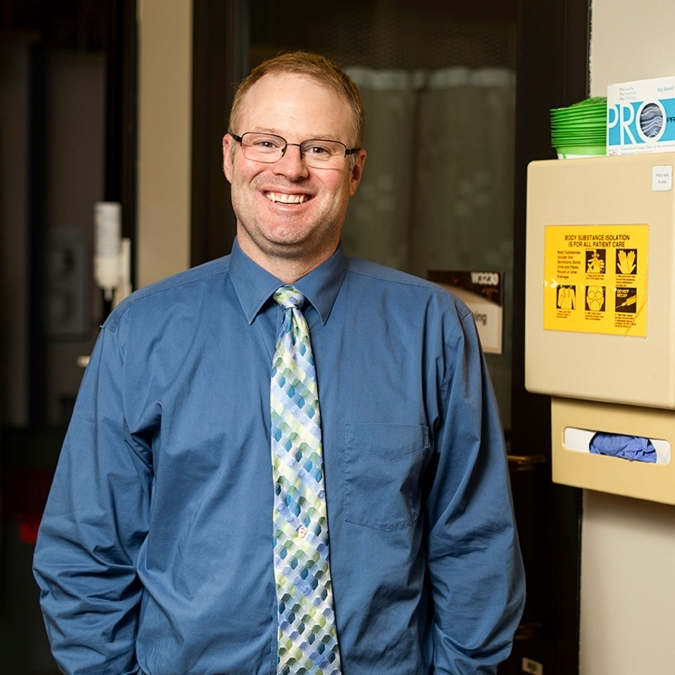According to the American Cancer Society, at least 42 percent of newly diagnosed cancers in the U.S.—about 750,000 cases in 2020—may have been avoidable, including the 19 percent of all cancers that are caused by smoking and the 18 percent caused by a combination of excess body weight, alcohol consumption, poor nutrition and physical inactivity.
Lifestyle Medicine is an evidence-based approach to preventing and treating these chronic diseases that are typically caused by modifiable lifestyle habits such as poor diet, inadequate exercise, smoking and other choices. Some common examples of diseases that respond well to this intervention are atherosclerotic heart disease (cholesterol buildup in the arteries of the heart), type 2 diabetes and obesity.
Patients are given a health coach to oversee their entire treatment process. This health coach will work with the patient’s physician, pharmacist, counselor, dietitian and potentially a strength coach to provide them with a whole model method of wellness focusing on six areas. In general, the health coach will be the first point of contact and will go with the patient to each individual visit with the physician and dietitian. The goal of the health coach will be working to keep the patient motivated and on course with goals.
“Lifestyle Medicine is relevant to nearly every patient, since everyone wants to either prevent or reverse disease. As a service, it works well with—and complements—nearly every other specialty,” said Stephen Neabore, M.D., “There are clinical benefits to nearly every organ and organ system as well as to overall health and wellbeing.”
According to the Centers for Disease Control & Prevention, 90 percent of the nation’s $3.5 trillion of annual healthcare costs are spent on chronic conditions. Early intervention is important as people become sicker earlier in life.
“We need to reform our health from the ground up and lifestyle medicine provides the tools to do that,” he said. Dr. Neabore is one of the two physicians at Monument Health who have developed the Lifestyle Medicine service for Monument Health.
“Looking at lifestyle factors and formulating a plan for improving health takes time. Typically, these visits are longer and include specific and detailed instructions for patients—and sometimes even for families. We often work as a team with dietitians, health coaches and others,” Neabore said. “Changes can take some time and progress will partially depend on the patient. There is more work involved than simply taking an extra medication every day, but the rewards are much greater. I like to think of it as an investment in health—on par with saving money for retirement.”
As patients begin to make healthful changes, they will feel better and will notice improvements in relevant measures of health (such as blood pressure, weight, blood sugar, etc.). This is the short-term benefit, while the long-term benefit is a longer, healthier life, with significantly lower risk for chronic illness such as heart disease and certain cancers, all while needing less medication and less time spent in the hospital.
“I realized early on in my medical career that we rarely cure people of chronic diseases in the way we do for acute issues like heart attacks, infections and broken bones. Instead, we ‘manage’ or ‘control’ these diseases, and patients tend to stay on medication for the rest of their lives,” Dr. Neabore added. “To me—and to patients—this was not truly making them well. I went into medicine to make people healthy and not just make them live longer with an ever-expanding list of medications.
Lifestyle Medicine interventions allow people to improve their health and sometimes even reduce their medication requirements. They tend to live longer, healthier lives, feel better and experience greater life satisfaction. As a primary care physician, this is extremely rewarding to both myself and the patient.”
Heart disease is the leading cause of death for men, women and people of most racial and ethnic groups in the United States.



